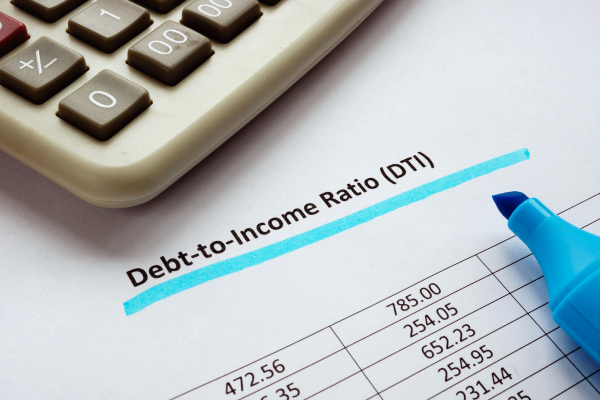Understanding your financial health is more important than ever. One of the most telling indicators of financial health is the Debt to Income (DTI) ratio. This simple yet powerful metric can influence everything from loan approvals to interest rates, and ultimately, your overall financial stability. Let’s go into what the Debt to Income ratio is, why it matters, and what your DTI should ideally be to ensure a prosperous financial future.
What is Debt to Income Ratio (DTI)?
The Debt to Income (DTI) ratio is a financial measure that compares your total monthly debt payments to your gross monthly income. It is a key indicator of your ability to manage monthly payments and repay debts. The formula to calculate your DTI ratio is straightforward:
DTI Ratio= Monthly Debt (Reoccurring) / Gross Monthly Income
For instance, if your total monthly debt payments amount to $2,000 and your gross monthly income is $6,000, your DTI ratio would be approximately 33.3%.
Why is Debt to Income Ratio Important?
Lenders use the DTI ratio to assess your risk as a borrower. A lower DTI ratio indicates that you have a healthy balance between debt and income, suggesting that you are more likely to manage your debt responsibly. Conversely, a high DTI ratio may signal financial strain and a higher risk of default, making it difficult for you to secure favorable loan terms.
It goes farther than borrowing, your DTI ratio also reflects your overall financial health. A manageable DTI ratio suggests that you have enough income to cover your debts while still having money left over for savings and other expenses. This balance is crucial for long-term financial stability and growth.
What Should Your DTI Ratio Be?
Different lenders and financial advisors may have varying benchmarks for an ideal DTI ratio, but generally, a DTI ratio of 30% or lower is considered desirable. Here’s a more detailed breakdown:
- Excellent (20% or lower): If your DTI ratio is 20% or lower, you are in excellent financial shape. This means you have a high level of income relative to your debt, making you an attractive candidate for loans with the best terms and interest rates.
- Good (21% to 30%): A DTI ratio in this range is generally considered good. You are likely to be approved for most loans, though you might not receive the absolute best terms compared to those in the excellent range.
- Fair (37% to 42%): This range indicates moderate financial stress. While you may still qualify for loans, you could face higher interest rates and less favorable terms. It’s advisable to reduce your debt to improve your DTI ratio.
- Poor (43% or higher): A DTI ratio above 43% is a red flag for lenders. It suggests that you are over-leveraged and may struggle to meet your debt obligations. Securing loans could be challenging, and if approved, they will likely come with high-interest rates and stringent terms.
How to Improve Your DTI Ratio
Improving your DTI ratio can significantly enhance your financial health and borrowing power. Here are some strategies to achieve a healthier Debt-To-Income ratio:
- Increase Your Income: Boosting your gross monthly income through raises, promotions, part-time jobs, or side hustles can help lower your DTI ratio. Even small increments in your income can make a substantial difference.
- Reduce Debt: Prioritize paying off high-interest debts like credit card balances. Consider debt consolidation or refinancing options to lower your monthly payments, thereby improving your DTI ratio.
- Avoid New Debt: Minimize taking on new debt, especially large loans or high-interest credit. Focus on managing and reducing your existing debt load.
- Budgeting and Financial Planning: Create and stick to a budget that allocates a portion of your income towards debt repayment. Financial planning can help you make informed decisions and stay on track with your financial goals.
Conclusion
Your Debt to Income ratio is more than just a number; it’s a crucial indicator of your financial health and stability. Understanding and managing your DTI ratio can open doors to better loan terms, lower interest rates, and a more secure financial future. By taking proactive steps to improve your Debt-To-income I ratio, you can enhance your overall financial well-being and navigate your financial journey with confidence.
Financial Health is a Journey
Remember, financial health is a continuous journey. Regularly monitor your DTI ratio, make informed financial decisions, and seek professional advice when needed. With diligence and smart financial management, achieving a balanced and healthy DTI ratio is well within your reach.
If you’re struggling to pay off debt, ACCC can help. Schedule a free credit counseling session with us today.







